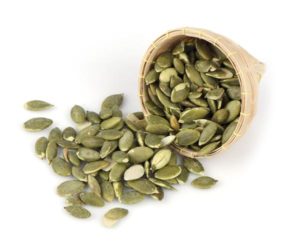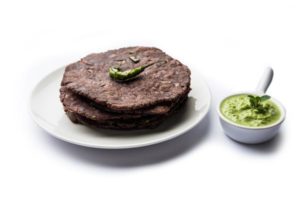
Nutrition For School Children
Anjali Mukerjee answers queries on nutrition for schoolchildren from parents. Read on to find out what are the best eating options for your school-going child and if you haven’t included them yet, now is the time to change their eating habits.
Q1) Adults need to eat 4-5 meals a day, is it the same for children especially since they are involved in more activities? What should their diet consist of?
 While most adults can do well on a three meal a day routine, children would definitely need frequent and small nutritious meals, so that they have the energy to carry out their daily activities. Different foods offer their own set of known and unknown nutrients, so it’s important to offer your child a variety of foods on a regular basis. Ensure that your child’s diet includes complex carbohydrates (whole grains, which are the body’s favourite fuel, and give your child the energy to play, pay attention in school, and do other activities).
While most adults can do well on a three meal a day routine, children would definitely need frequent and small nutritious meals, so that they have the energy to carry out their daily activities. Different foods offer their own set of known and unknown nutrients, so it’s important to offer your child a variety of foods on a regular basis. Ensure that your child’s diet includes complex carbohydrates (whole grains, which are the body’s favourite fuel, and give your child the energy to play, pay attention in school, and do other activities).
Rich sources of protein (milk, curd, cheese, eggs and fish are essential to maintain and repair tissues), adequate amount of calcium (dairy and non-dairy sources) and vegetables and fruits (vitamins and anti-oxidants) are also important.
Encourage them to eat salads, sprouts, nuts and drink juices. Soya biscuits (available a most leading stores) can be carried in tiffin boxes for their mid-morning break. They can be topped with grated cheese or they could be taken along with a yogurt and cheese dip made at home. Walnuts, figs, dates and apricots are also healthy snacking items for children. Limit intake of processed foods, refined foods and carbonated beverages.
Q2) My daughter often has white patches over her face. I’ve been told it is probably vitamin C deficiency or symptom of ringworms. Is it true? What can I add to her diet?
 I would advise you to initially consult a dermatologist or physician to rule out the possibility of any fungal infection. Having a well-balanced diet, rich in anti-oxidants, calcium, B-vitamins and adequate proteins ensures that there are no deficiencies and reduces the chances to get any white patches. As for her diet, ensure that she eats some almonds, black til and pumpkin seeds as part of her daily diet.
I would advise you to initially consult a dermatologist or physician to rule out the possibility of any fungal infection. Having a well-balanced diet, rich in anti-oxidants, calcium, B-vitamins and adequate proteins ensures that there are no deficiencies and reduces the chances to get any white patches. As for her diet, ensure that she eats some almonds, black til and pumpkin seeds as part of her daily diet.
Q3) Schoolchildren hardly ever get the time for breakfast and most often their next meal is at 12:30-1:00. So, what is the best possible nutritious breakfast for children?
Breakfast is an important meal for the whole family and more so for a child. It helps you to kick-start the day. Fruit juices are rich in antioxidants and an ideal way to begin your day. Cheese and tomato slices on whole grain bread or whole-wheat khakra serves as a tasty and healthy breakfast food. Green moong sprouts mixed with chopped cucumber, tomato and carrot, dressed in grated cheese and curd, rice kheer/porridge made with milk, almonds, sesame seeds and jaggery, milk and muesli, eggs with roti or wheat breads are a few nutritious options for your child. Choose the options your child is most likely to enjoy, because variety improves everyone’s appetite.
Q4) My son often complains about pains on his thighs, calves and knees — unrelated to any wound, why does he get this? Is it calcium deficiency and how can I supplement this through his diet?
The cause for his pain could be strained muscles, due to overexertion (excessive jumping/playing/exercise) or inadequate calcium and magnesium in his diet. Although the easiest route to giving kids the calcium they need might be pouring a glass of milk or serving up a cup of curd or grilled cheese sandwich, not every child will consume dairy delights.
Calcium can then be supplemented by adding dark leafy vegetables, legumes such as chickpeas, nuts (almonds), soybean, sesame seeds (til laddoos), whole grains (naachni) and carrot juice in their diets.
Q5) My daughter (11) is very thin. Although everyone in the family is genetically on the thinner side, I think she need to put on some weight? What can I give her?
 Usually, children are underweight because of their wrong eating habits such as skipping meals, eating small meals, inadequate nutrition, stress, worms, nervous conditions, overactivity, heredity, poor digestion and emotional factors like anxiety, fear of the unknown.
Usually, children are underweight because of their wrong eating habits such as skipping meals, eating small meals, inadequate nutrition, stress, worms, nervous conditions, overactivity, heredity, poor digestion and emotional factors like anxiety, fear of the unknown.
It is important to treat these conditions if you want her to gain weight. Having done that, focus on the diet. The best foods which would help your daughter to gain weight are going to be those, which are healthy and calorie-dense. Try giving her fruit juices, milkshakes, rice (with added ghee), yams, potatoes, banana, mangos, chiku, natural sweeteners like honey, jaggery, dates, nuts (walnuts and almonds), eggs and olive oil.
Also, ensure that she has frequent mini meals, which are better than having three big meals. Avoid adding nutritionally void foods (junk, fried and refined foods) to the diet, just for the sake of more calories. These may be detrimental to health in the long run.
Q6) Are health supplements such as Paediasure, B-capsule and Calcium Sandoz good for my child? Can they lead to complication later in life and for how long must I continue giving him these?
Not unless needed by him. You need to identify the nutritional deficiency and only then ascertain the need for supplementation. Usually, a well-balanced diet with nutrient-rich meals and snacks can provide most of the vitamins and minerals needed by a child. And that’s the best way to provide them.
If your child is eating properly, then there is no need to give him any additional supplements. Introduction of any nutritional supplements or vitamins should be done only as per physician’s advice and purely based on your child’s nutritional requirements.
7) Should I give my son Cod liver oil? How will it help?
Talk to your son’s healthcare provider, before you give him any vitamin or mineral supplement (even fish oil supplements) or take one yourself. A fish oil supplement may be advised for your son, if he has hair fall or any skin problem.
Q8) Childhood obesity is a big health problem these days. How does one tell the child to stop eating?
It is important to understand the difference between hunger and appetite or the ‘need to eat’ and ‘want to eat’. Hunger is a physiological need while appetite is the psychological desire to eat a specific food and is ruled by taste buds and social situations.
When your child begins to eat what his body needs for balance, he will be in tune with nature. When he begins to eat a balanced diet, he won’t abandon ice-creams and potato chips: but a fresh green vegetable with whole wheat roti will fully satisfy him. It is also important to be a good role model.
A parent who does not eat vegetables can’t expect his child to do so. Obesity runs in families and spreads due to wrong habits inculcated during childhood. Cut out the junk and watch his weight return to normal.
 Q9) My daughter has a hectic schedule — early morning school; tuitions; basketball practice; dance class and then studies. Her eating times go haywire and she usually eats whatever is available. How do I introduce some nutrition in her diet?
Q9) My daughter has a hectic schedule — early morning school; tuitions; basketball practice; dance class and then studies. Her eating times go haywire and she usually eats whatever is available. How do I introduce some nutrition in her diet?
Your daughter has special nutritional needs as she keeps so active. Make sure she has adequate protein as she is in the ‘growth phase’ of her life. She will get this by adding two eggs, two glasses of milk and about 150 grams of chicken or fish a day.
In order to provide the necessary energy for her hectic schedule, she should focus on consuming complex carbohydrates such as rice, whole wheat, jowar and naachni chappatis. Fruit juices will provide her with antioxidants and instant energy. Ask her to carry a mixture of raisins and almonds as an in-between snack food.
If you have any diet queries for your child, get in touch with our experts. Call on 1800-266-0607 to book an appointment or you can also chat with our experts.
